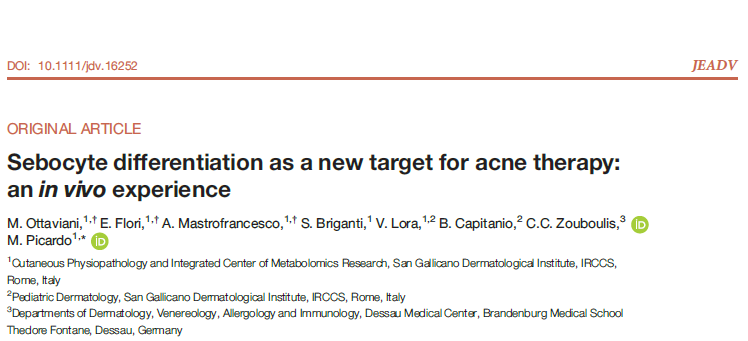Nogra Pharma is available to give comprehensive Project presentations, provide additional Project specific details or confidential information and discuss potential collaborations or out-licensing opportunities with interested companies.

Abstract
Background: Acne, a disease of the sebaceous gland with multifactorial pathogenesis, affects more than 85% of adolescents. A better deepening of the mechanisms underlying the disease is needed to define effective and mechanism targeted treatments.
Objective: To understand whether the sebocyte differentiation process could be involved in the pathogenesis of the disease.
Methods: Protein expressions were evaluated by Western blot analysis and ELISA; mRNA levels by real-time RT-PCR, lipid analysis and lipid peroxidation were performed by gas chromatography, mass spectrometry and spectrophotometric assay.
Results: In vitro, low differentiated SZ95 sebocyte expressed an up-modulation of genes involved in sebogenesis and a higher level of insulin receptor respect to differentiated cells, resulting in an increased response to insulin and in the production of acne-like sebum. The induction of SZ95 sebocyte differentiation by the peroxisome proliferator activated receptor γ (PPARγ) modulator NAC-GED0507 reduced the response to insulin normalizing the sebum production and decreasing the release of pro-inflammatory mediators. In vivo treatment of acne patients with NAC-GED0507 1% gel ameliorated clinical manifestations and induced in sebum the expression of PPARγ, associated with the decrease in mammalian target of rapamycin activation and levels of inflammatory molecules, confirming the results obtained in vitro.
Conclusions: The study provides relevant insight into acne pathogenesis, identifying an alteration of sebocyte differentiation as pathogenetic basis of the disease and the induction of the differentiation process as a therapeutic target in acne therapy interfering with all pathogenic mechanisms.
